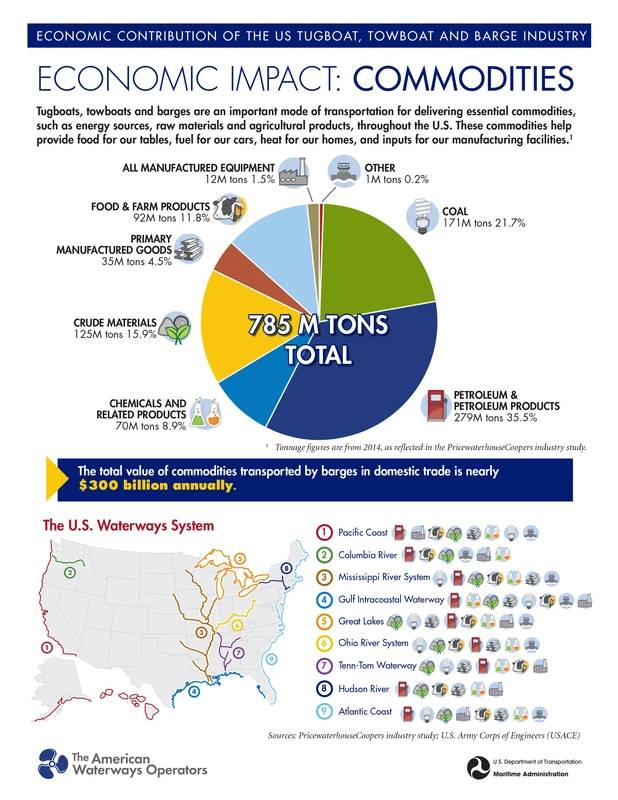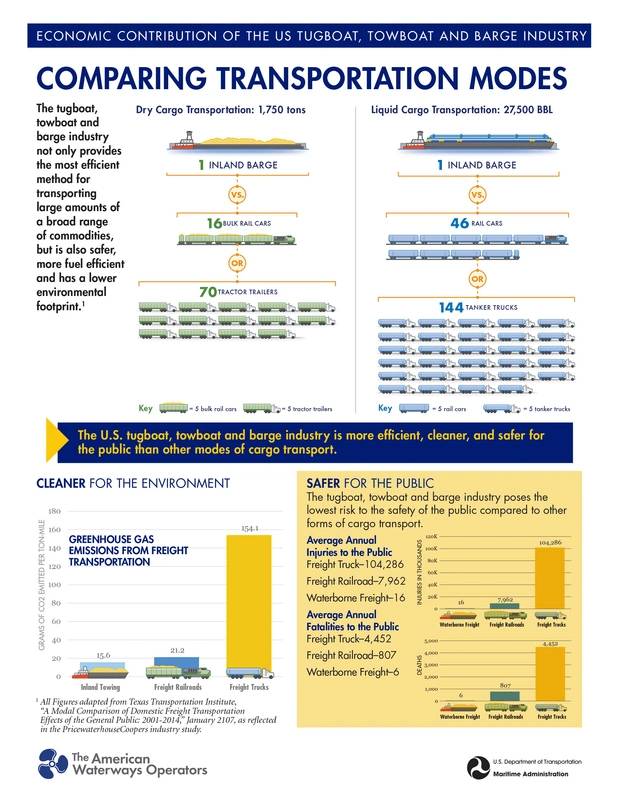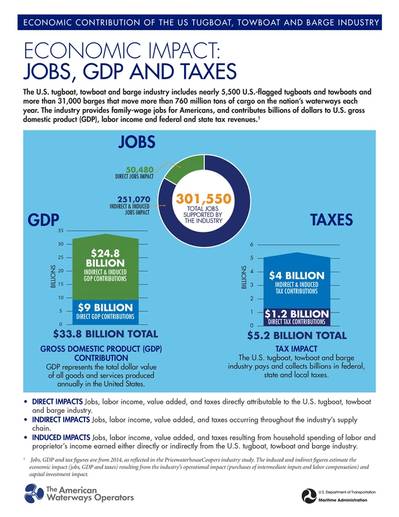COVID-19 & the US Workboat Market: Business Continuity, Not Business as Usual
In today’s environment, the overarching challenge for the American tugboat, towboat and barge industry is to continue transporting the vital commodities that help keep our nation’s economy moving during a highly uncertain time, while taking all necessary measures to ensure the health and safety of our workforce as the COVID-19 pandemic continues to evolve – in other words, to ensure business continuity, while recognizing we are not, nor can we be, going about business as usual. This industry, long defined by its adaptability and resiliency, is fully embracing this challenge as it navigates the present and looks toward the future.
The state of the industry in this moment can best be captured through the three lenses of health and safety, continuity of operations and the overall economic landscape.
In the earliest days of the pandemic, companies across the country immediately recognized that the key to keeping vessels and commerce moving was keeping crews healthy. Companies have worked aggressively to put in place preventive measures to minimize contact between crew members and non-crew and mitigate transmission risk onboard. These protocols are being refined continuously as pandemic developments require, and as companies actively communicate with and learn from one another. While these efforts have been largely successful in keeping coronavirus from significantly penetrating our mariner workforce, continued vigilance is imperative.
Even as the industry focuses on keeping crews healthy, it continues to perform the critical functions on which our nation has always depended and needs even more so now. Crews continue to deliver energy, agricultural and industrial cargoes that are indispensable drivers of the American economy, and they are also providing direct pandemic relief by transporting commodities that support production of personal protective equipment and by conducting ship-assists to help Navy hospital ships dock safely.
That the nation’s tugboat, towboat and barge companies are navigating today’s challenges is testament not only to the skill and dedication of the men and women of this industry, but also to their resilience. The industry’s extensive experience with contingency planning, safety management systems and incident command structures has served it well in managing the health, safety and operational challenges posed by the pandemic.
But, it is far from smooth sailing on the economic front. While the tugboat, towboat and barge industry did not experience the abrupt destruction of demand that, for example, the passenger vessel sector experienced, we are seeing significant ripple effects as many customer industries (oil and gas, steel, construction, etc.) have been hit hard by the pandemic and the accompanying economic downturn. At the same time, the industry has incurred unbudgeted costs to implement new procedures necessitated by COVID-19.
While COVID-19 features prominently in our industry’s present, both opportunities and challenges lie ahead in its future.

All indications are that the pandemic will remain with us for some time, so the industry will need to continue evolving to meet the challenges of a “chronic” COVID-19 environment. Business must go on – safely. And pandemic or not, severe weather like hurricanes and flooding are annual challenges that companies have learned to prepare for and contend with. Fortunately, the lessons learned and communications channels opened with government and other stakeholders during severe weather events as well as the pandemic have great potential to be mutually reinforcing, helping us get better at preparing for and managing crisis situations.
As ever, the vitality of the tugboat, towboat and barge industry depends not only on prioritizing health and safety, and on successful navigation of the economic environment, but also on sound public policies that will position the industry to continue making vital contributions to American prosperity and security.
The Jones Act, which celebrates its 100th anniversary this year, but whose antecedents date back to the earliest days of our country, has served our nation’s economic, homeland and national security well. It is more relevant than ever today, as both the pandemic and the prevailing geopolitical situation underscore what a bad idea it would be to relinquish control of our domestic maritime supply chain to foreign companies (perhaps state owned) and foreign mariners.
Our industry’s experience during COVID-19 has also underscored the importance of a uniform national system of laws and regulations governing interstate maritime transportation. As state and local stay-at-home orders began to proliferate this spring, we could have experienced catastrophic disruption in the maritime supply chain. We did not, largely because the federal government took timely action to codify the status of maritime transportation businesses and workers as “essential critical infrastructure” that needed to continue unfettered operations. The lessons of this experience are clear: just as a patchwork of stay-at-home orders is incompatible with the effective functioning of the maritime supply chain, so too is a patchwork of state and local laws and regulations established for other purposes. Uniform, nationally consistent regulations are essential.
Investing in our ports and waterways infrastructure is vital to our industry, and will also help our nation’s economy get back on its feet. This means passing a Water Resources and Development Act; increasing investment in locks, dams, harbor maintenance and dredging; and building the next generation of Coast Guard buoy tenders and ensuring the funding to keep them operating. As demand for waterborne commerce increases as we recover from the economic shocks of the pandemic, we need to ensure that our waterways are open for business and in condition to accommodate this demand.
On the regulatory front, we will continue to work closely with the U.S. Coast Guard to implement the Subchapter M towing vessel inspection regulations effectively and on schedule while adapting inspection techniques as appropriate to minimize health and safety risks due to the pandemic.
The United States counts on the tugboat, towboat and barge industry to help drive the economy and keep our waterways safe and secure. We will proudly continue to answer that call, through all of our nation’s challenges.














